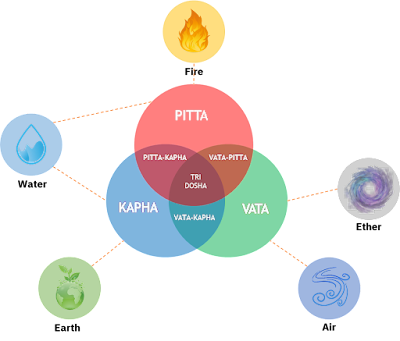How Ayurveda Is Useful For Life
Ayurveda- The Heritage Of India
The traditional system of natural medicine is still considered sacred in India. Ayurveda is considered one of the ancient healing science. Ayurveda knowledge originated in India and stems from the ancient Vedic culture. The term Ayurveda originates from the traditional Indian language of Sanskrit and means "Knowledge of life". With the tremendous success of Ayurveda, it is one of the oldest system of traditional medicine popular worldwide. Ayurveda has made it possible for the people to reap the benefits of what mother nature has to offer to the mankind. Ayurveda believes that man and the environment is inextricably interrelated. This balanced connectivity ensures good health.
Principle of Ayurveda
Philosophy Of Ayurveda
Ayurveda believes that creativity and balance originates from ones own conscience. Individual is seen to be connected to the entire universe. Only in the awareness of this consciousness an individual feels himself in harmony and unity with all elements of the universe.
Ayurveda Dosha
What Determines your Dosha?
Ayurveda believes that the whole universe is composed of five elements: Vayu (Air), Jala (Water), Aakash (Space or ether), Prithvi (Earth) and Teja (Fire). The unique body type of each individual called the dosha are derived from these five elements of the nature and its related properties. They are namely Vata, Pitta and Kapah.
Every individual is a mixture of all the three dosha. Out of the three dosha one is primary, the other is secondary and third is least prominent Our birth constitution may change due to age, external environment, physical, emotional and mental health conditions. This imbalance of an excess or deficiency of Vata, Pitta and Kapah leads to disease specific to that dosha. They all regulate specific body function of the mind and body and have impact on the human body. Imbalance of a dosha creates symptoms and health problems that are related to that dosha. The other reason might be the presence of undigested food in our body. So it is essential to detox and cleanse our body to be disease free.
Vata
Air and ether together represent Vata. Cold, dry weather is Vata. Vata body type are lean, creative, energetic, enthusiastic and quick minded.
It regulates energy and movement of the body. This dosha governs the large intestines, pelvis, bones, ears, thighs and skin. Vata is associated with the mobility in the body, including the mental and physiological functions of the body.
Pitta
Fire and Water together represents Pitta. Hot weather is pitta. Pitta body type have moderate, well proportionate, athletic physique. When pitta is in balance, they have strong metabolism, good appetite and digestion. Imbalance of pitta can cause anger and agitation. It can also lead to burning disorders like ulcer and inflammation.
It regulates digestion of food into energy. This dosha governs the small intestines, stomach, sweat glands, eyes.
Kapah
Water and earth create Kapah. Cold, damp season is Kapah. Kapah body type are solid, heavy and strong. They have a tendency to be overweight. They are calm and thoughtful.
Kapah gives the body its weigh and mass and hence provides structural stability. It promotes body structure and lubrication. This dosha governs the lungs, chest and spinal fluid. Imbalance of Kapah can lead to heaviness, lethargy and laziness.
How to balance your Dosha?
Ayurvedic diet plan should be taken as per the dominant dosha. This would ensure good health and boost immunity.
 |
| Balance Your Dosha |
Adopting to better lifestyle changes, use of herbs and doing suitable physical exercises like yoga as per the dosha, can help eliminate imbalance and reestablish ones original constitution of human body. Warm oil massages can help with relaxation, improved blood circulation. It is believed to promote general health and balance.
It is better to prevent an upcoming disease, by balancing your dosha.


ConversionConversion EmoticonEmoticon